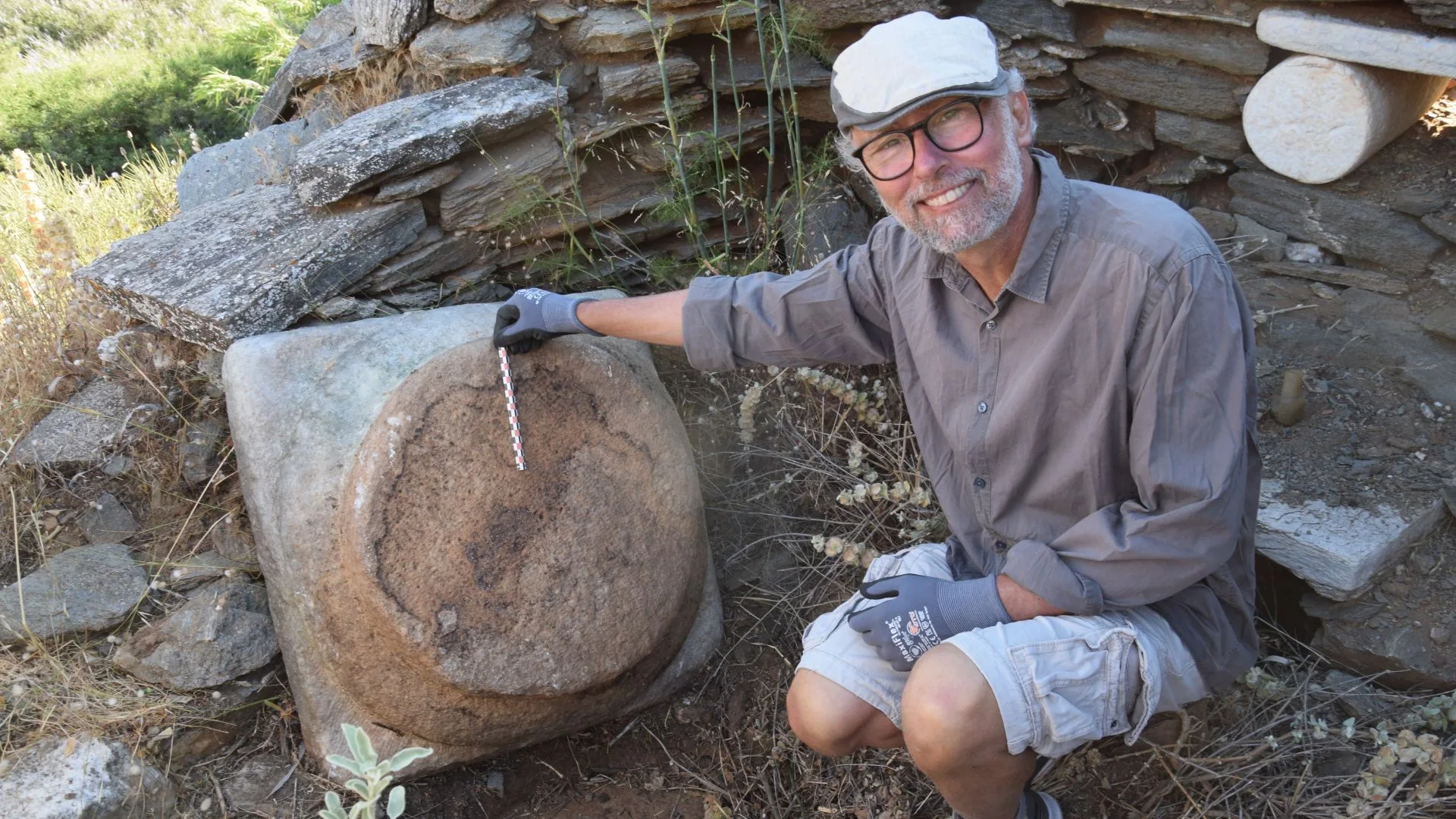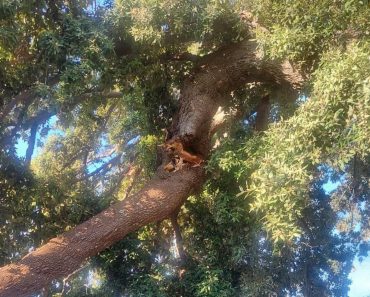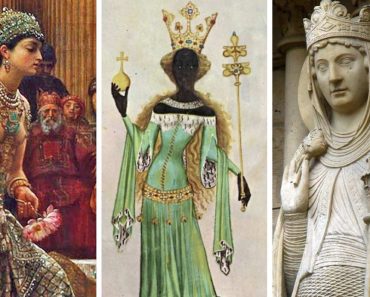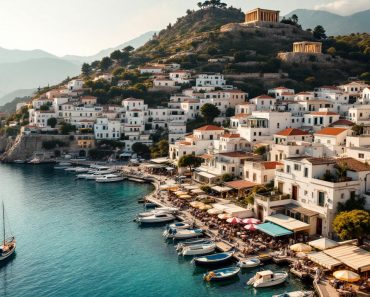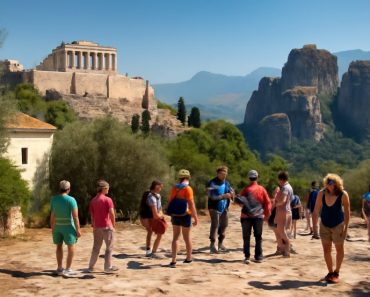
Archaeologists have uncovered a temple dedicated to Demeter, the Greek goddess of agriculture and fertility, during excavations in the ancient Greek city of Aigai (Greek: Αἰγαί) in western Turkey. The discovery sheds new light on the city’s religious practices and its reliance on divine blessings in a harsh landscape.
A city rooted in Aeolian history
Aigai, located in the Yuntdağı region of Manisa’s Yunusemre district, was one of 12 cities founded by the Aeolian people in Western Anatolia. Dating back to the eighth century B.C., the settlement has produced significant remains that highlight its cultural and spiritual traditions.
Excavations led by a Turkish archaeologist
Professor Yusuf Sezgin, head of the Archaeology Department at Manisa Celal Bayar University, leads the current excavation team. Three temples connected to ancient Greek beliefs have been identified in Aigai; two, dedicated to Athena and Apollo, were found in earlier seasons, while this year’s work has centered on a sanctuary of Demeter.
📍 Manisa’nın Yunusemre ilçesindeki Aigai Antik Kenti’nde sürdürülen kazılarda Yunan mitolojisinde toprak ve bereket tanrıçası olarak bilinen Demeter’e adanmış tapınak gün yüzüne çıkarılıyor.
Kazı Başkanı Prof. Dr. Yusuf Sezgin, antik şehrin tiyatrosunun batısında, surların… pic.twitter.com/bwFtaAvA1N
— arkeolojihaber ® (@arkeolojihaber) August 27, 2025
A two-room structure with symbolic offerings
Archaeologists uncovered a two-room structure approximately 50 square meters (538.196 square feet) west of the ancient theater, near the cliffs and the city wall. Built during the Hellenistic period, it was identified as a temple of Demeter based on an inscription recorded by German researchers in 1886.
Inside, the team discovered hundreds of miniature hydria, or water vessels, placed as offerings to the goddess. These finds suggest that rituals at the site were closely tied to agriculture and fertility.
A goddess central to a barren land
The emphasis on Demeter reflects the geography of Aigai. The city was situated in a rocky, barren region with little arable land. Farming was difficult, and local people turned to Demeter, who was believed to bring fertility and abundance, to ensure survival and prosperity.
Toprağın ve Bereketin Tanrıçası Demeter’e adanmış tapınakta yürüttüğümüz kazı çalışmaları ilginç buluntuları ile devam ediyor.#aigai@aigaiantikkenti @kvmgm pic.twitter.com/Y9s6G5IiXq
— Yusuf SEZGİN (@YusufAigai) August 28, 2025
A site damaged but still revealing
The temple was heavily damaged during illegal excavations in the 1960s, though many artifacts were recovered at the time. Among them were votive offerings, with miniature hydria emerging as the most striking evidence of the community’s devotion.
Nearly 1,000 vessels recorded
Archaeologists explain that water, represented by these small hydria, was viewed in antiquity as the essence of fertility and agricultural life. People likely collected spring water, poured it into these vessels as part of ritual practice, or left them behind as votive gifts.
Nearly 1,000 miniature vessels have been documented so far. Their number underscores the significance Aigai’s inhabitants placed on Demeter in their struggle to cultivate a difficult landscape.


